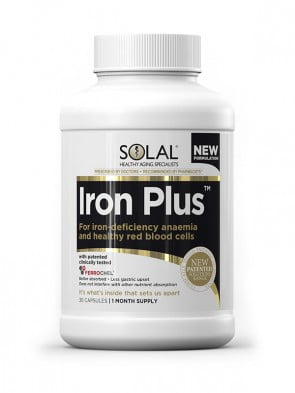Iron Deficiency

Are you oftentimes so tired that you feel as if you’ve been hit by a ton of bricks? While it’s normal to feel overtired now and then, a constant state of fatigue could signal an underlying medical problem. In fact, you could be suffering from lack of iron, the #1 nutritional deficiency in the world.
Iron is an essential nutrient, critical for producing haemoglobin, the substance in red blood cells that transports oxygen all over the body. If you don¹t have enough iron, your body has to work a whole lot harder to get the energy it needs, which can leave you feeling tired, weak, irritable and unable to focus.
Iron-deficiency
Many equate iron deficiency with anemia, the condition in which your body has a lower than normal number of red blood cells. But research shows that there’s a whole other category of iron deficiency that precedes anemia. To diagnose it, a blood test must measure ferritin levels, the iron stores in your blood.
Many people go through their annual medical exam assuming that their physician is checking for low iron, but this is not the case. The typical blood work carried out includes cholesterol and blood pressure numbers, for instance, but not iron, unless you describe a specific symptom that warrants it. What’s more, even if you are checked for anemia, you’re not given a ferritin blood test that could show low iron levels indicating a mild to moderate deficiency.
Menstruating women with heavy periods are most at risk for low iron. To check yourself, take the “tampon test.” If you need to change your tampon after less than 2 hour, it’s a sign of a heavy period and could mean you are losing too much iron.
To determine if your fatigue is caused by an iron deficiency, check yourself for these other five major warning signs:
- You feel fatigued for over a month.
- You always feel cold.
- Your skin looks paler than usual.
- You just can’t focus.
- You have substantial hair loss and brittle nails.
If you have one or more of the symptoms listed above, your fatigue may be due to low iron levels. See your doctor and ask for a ferritin-level test.

